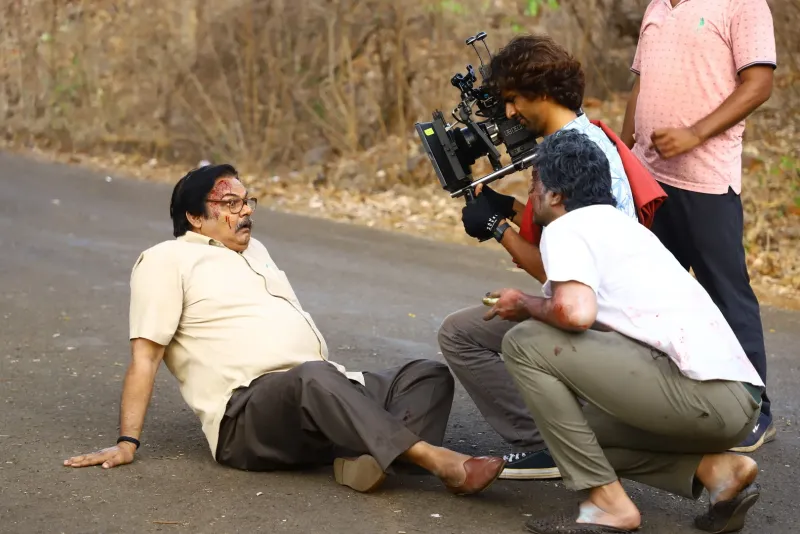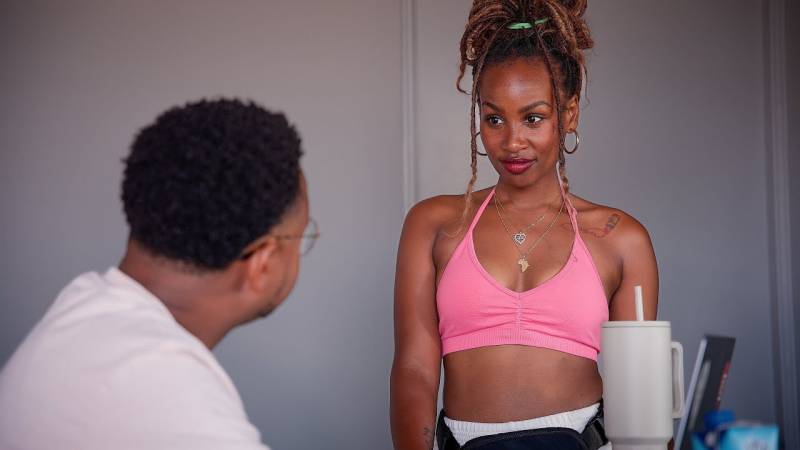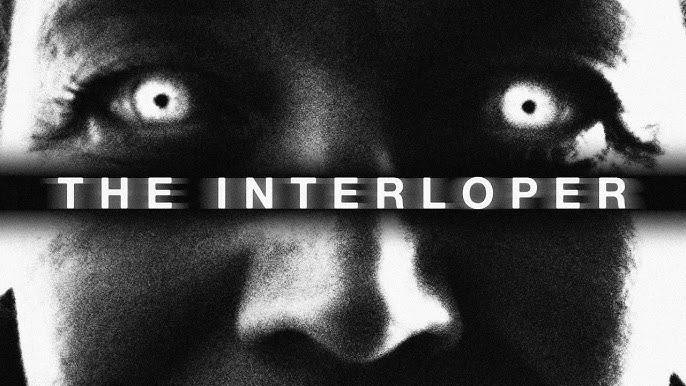Adam is a therapist who is treating a particularly difficult patient, who lacks confidence in Adam's ability to understand and help her. But Adam also has issues of his own, particularly with his mother, which seem to come out as his interaction with his patient intensifies. But his mother helps to guide her son through the troublesome exchange, Adam comes to an understanding with his relationship with his mother -- and achieves some peace as well. Directed and written by Ron Eyal, this perceptive and compelling short drama opens as Adam enters his office, where his mother awaits him, immediately correcting his appearance and putting him off balance. But when his next patient comes in, already skeptical of Adam's ability to empathize with her and ready to flee the session, she doesn't see as Adam's mother "coaches" him through the attempt to keep his client from leaving. We realize Adam's mother is more a voice in his head, but still an active presence in his internal life -- sometimes to the detriment of what's going on in his "real" life, which viewers witness as Adam fumbles with his client, to sometimes humorous and awkward effect. Shot with an intimate naturalism, the situation handles its almost supernatural angle in a straightforward, matter-of-fact manner, and after a few quirky, jagged scenes reflecting Adam's unbalanced state of mind and life situation, the central action between Adam, his client and his mother unfolds, allowing for the film's psychologically penetrating writing to hit its stride and truly shine.

BAFTA-winning lead actor Adeel Akhtar offers a strong, layered performance, playing Adam as a man fraying at the edges, scrambling to work out his issues as he attempts to help others with theirs, while actor Souad Faress plays his mother with a caring but critical firmness. As mother and son, their dynamic is lived-in and complicated, and viewers can see their love, as well as why Adam would struggle under her exacting eye. As the client, actor Marion Bailey's performance is the crucial hinge, playing a vulnerable older woman who finds herself grieving for a husband she kicked out after years of neglect. As she delves deeper into her layers of hurt and sadness, Adam, too, seems to uncover layers of empathy and understanding within himself as he helps his client navigate her feelings. Their exchange is deeply moving, for both the audience and characters, leaving them transformed and hopeful, perhaps for the first time in a while. Finding these reservoirs of compassion also allows Adam to grapple with his feelings about his mother, revealing the depth of its actors' performances as they tiptoe gently into the lovely grace note that makes up the ending of "The Therapist" -- and letting Adam come to some inner peace and equilibrium about his inner regrets, grief and sorrow. He finally achieves what some could argue is the final marker of maturing: the ability to see his parent as a complex, flawed human being with experiences and emotions of her own, and feel understanding and empathy despite the damage it has wrought on him.



